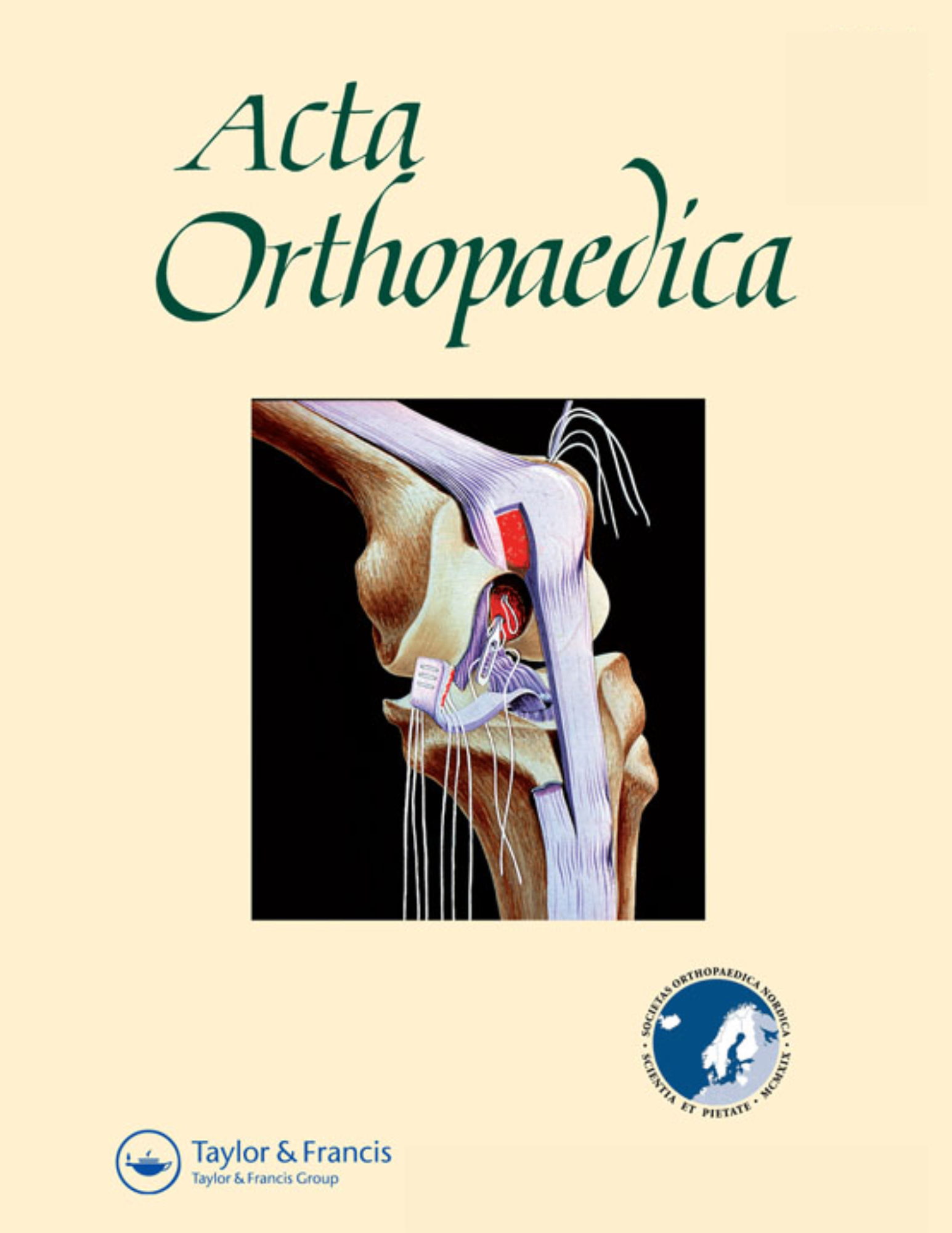
Celecoxib decreases post-operative pain and lowers morphine consumption after TKR

Celecoxib decreases post-operative pain and lowers morphine consumption after TKR
Effects of celecoxib on blood loss, pain, and recovery of function after total knee replacement: A randomized placebo-controlled trial
Acta Orthop. 2007 Oct;78(5):661-7Did you know you're eligible to earn 0.5 CME credits for reading this report? Click Here
Synopsis
50 patients requiring total knee replacement (TKR) were randomized to receive either a placebo, or Celecoxib (200mg) preoperatively and twice daily for 3 weeks postoperatively. The primary outcome examined was perioperative blood loss, and other subjective factors were reviewed. Results demonstrated that Celecoxib does not increase perioperative blood loss, but decreases post-operative pain and opioid consumption.
Was the allocation sequence adequately generated?
Was allocation adequately concealed?
Blinding Treatment Providers: Was knowledge of the allocated interventions adequately prevented?
Blinding Outcome Assessors: Was knowledge of the allocated interventions adequately prevented?
Blinding Patients: Was knowledge of the allocated interventions adequately prevented?
Was loss to follow-up (missing outcome data) infrequent?
Are reports of the study free of suggestion of selective outcome reporting?
Were outcomes objective, patient-important and assessed in a manner to limit bias (ie. duplicate assessors, Independent assessors)?
Was the sample size sufficiently large to assure a balance of prognosis and sufficiently large number of outcome events?
Was investigator expertise/experience with both treatment and control techniques likely the same (ie.were criteria for surgeon participation/expertise provided)?
Yes = 1
Uncertain = 0.5
Not Relevant = 0
No = 0
The Reporting Criteria Assessment evaluates the transparency with which authors report the methodological and trial characteristics of the trial within the publication. The assessment is divided into five categories which are presented below.
4/4
Randomization
4/4
Outcome Measurements
2/4
Inclusion / Exclusion
4/4
Therapy Description
0/4
Statistics
Detsky AS, Naylor CD, O'Rourke K, McGeer AJ, L'Abbé KA. J Clin Epidemiol. 1992;45:255-65
The Fragility Index is a tool that aids in the interpretation of significant findings, providing a measure of strength for a result. The Fragility Index represents the number of consecutive events that need to be added to a dichotomous outcome to make the finding no longer significant. A small number represents a weaker finding and a large number represents a stronger finding.
Why was this study needed now?
Non-steroidal anti-inflammatory drugs can be used preoperatively and postoperatively as an analgesic, but its use is often discontinued prior to surgical treatment due to the belief that it increases perioperative blood loss. COX-2 inhibitors, a form of non-steroidal anti-inflammatory drug (NSAID), can be used for pain management, but there is uncertainty on its positive and negative effects. This study examines the effect of Celecoxib, a COX-2 inhibitor on perioperative and postoperative outcomes (blood loss, pain, analgesic requirement, range of motion and other subjective outcomes) in total knee replacement (TKR).
What was the principal research question?
What are the clinical and subjective perioperative and postoperative outcomes of Celecoxib (a COX-2 inhibitor) in patients undergoing total knee replacement (TKR) surgery?
What were the important findings?
- There were no significant differences seen in total, drainage or hidden blood loss between the intervention (Celecoxib) and placebo group. The total blood loss for the placebo group was 810 mL compared to 733 mL for the Celecoxib group. (95%CI= -1.6-11.6)
- The intervention group reported 30% lower pain scores compared to the placebo group during the first 4 weeks postoperatively.
- The intervention group also reported lower opioid consumption postoperatively (6 SD 6 mg vs. 10 SD 7 mg; 95% CI -9.5 to -2.5).
- At the 1-year follow-up, no effect was seen on range of motion, pain, and subjective outcomes.
- No deep infections or wound complications were seen during the first year postoperatively, but one patient from the placebo group sustained a bilateral deep vein thrombosis at 1 month postoperatively. The patient was treated successfully with warfarin.
- KOOS values improved from preoperation measurements in both groups at 3 and 12 months, but the difference between groups was not significant
What should I remember most?
The use of Celecoxib did not induce increased blood loss perioperatively, but reduced postoperative pain after total knee replacement (TKR) surgery. At the one-year follow-up, pain, range of motion and subjective outcomes (KOOS score) did not improve following the postoperative use of Celecoxib.
How will this affect the care of my patients?
Patients undergoing total knee replacement (TKR) may find short-term pain relief postoperatively when taking Celecoxib. However, significant results/improvements may not be seen at 1 year. Further studies are being performed by the authors to examine the effect of Celecoxib on early prosthesis fixation.
Learn about our AI Driven
High Impact Search Feature
Our AI driven High Impact metric calculates the impact an article will have by considering both the publishing journal and the content of the article itself. Built using the latest advances in natural language processing, OE High Impact predicts an article’s future number of citations better than impact factor alone.
Continue



 LOGIN
LOGIN

Join the Conversation
Please Login or Join to leave comments.